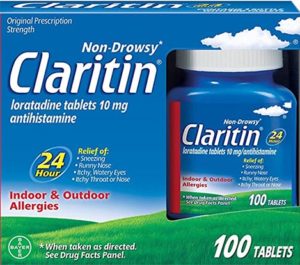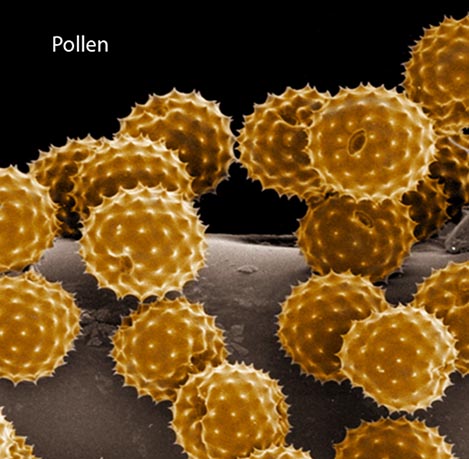
Allergy medications will affect dental health. Aeroallergens exist indoors and outdoors, and spring is ripe with pollen and allergy inducing fungi. Airborne spores and other fungi may originate in fields, forests, agricultural crops, flowers, or grass. Because they are light, sticky, and plentiful, they are easily transferred into homes, offices, and cars. Impossible to get away from, they can cause lung illnesses. But how can they affect your oral health? Most allergy medications can cause dry mouth causing a host of other issues to develop. If you have allergies or are suffering from dry mouth, consult your dentist, Dr. James Fondriest, to discuss treatment options.
Effects Of Seasonal Allergy Medications
Allergies are caused by an increased response by your immune system to a substance. Allergies cause a host of uncomfortable symptoms including sneezing; stuffy, itchy, or runny nose; and itchy, watery eyes. Medication is the only relief. The economic impact of upper respiratory seasonal allergies is close to $3.4 billion in medical costs. Nearly half that cost is due to physician prescribed medications. these medications have side affects which can cause many dental problems. Side effects caused by allergy medications include:
Allergy medications cause dry mouth:
Saliva does more than just moisten our food, making it easy to swallow. Although it is 98% water, the other 2% is composed of useful enzymes, helpful mucous, and electrolytes. These components found in saliva work to protect your mouth against harmful bacteria. Allergy medications affect dental health by drying the mouth out. A dry mouth can lead to tooth decay, bad breath, gingivitis, and periodontal disease.
 Mouth breathing is not good for oral health
Mouth breathing is not good for oral health
Allergy congestion often results in mouth breathing. Mouth breathing causes the saliva to evaporate causing a dry mouth. When gum tissue becomes dry it increases the chances of developing gum sensitivity, gum disease, and tooth decay. Studies show that mouth breathing may lead to palate malformations, dental overbites, and crooked teeth. Mouth breathing causes the cheek muscles to relax onto the upper teeth. This long term pressure can lead to crooked teeth.
Sinus blockage can cause tooth pain:
Many allergy sufferers experience sinus pain in their top teeth. Our maxillary sinuses are located above our upper molars. Due to the sensitivity in this area, any irritation can lead to pain. In addition, excess mucus builds up to defend against the allergens. This causes pressure and contributing to sinus pressure and pain.
Allergy medications can contribute to sleep apnea:
A common side effect for people suffering from seasonal allergies is sleep apnea. Sleep apnea is a temporary suspension of breathing. It can lead to obesity, diabetes, irregular heartbeat, high blood pressure, heart attack, and stroke. Some signs of sleep apnea include:
- Snoring: People suffering from sleep apnea often snore excessively.
- Teeth grinding: Sleep apnea has been shown to increase bruxism. While the allergy medications don’t directly cause bruxism, the oral health is adversely affected by it.
- Frequent Wakefulness: People with sleep apnea often wake themselves up from loud snoring. Also, when their breathing stops, their brain will signal them to wake up.
- Gasping: Caused by lapses in breathing.
- Snorting: Also caused by lapses in breathing.
- Choking During Sleep: Due to airway obstruction by the soft palate.
Sleep apnea and obstruction of your airway
Sleep apnea can be caused by soft palate which is the fleshy part at the top and back of your mouth. A soft or thick palate can obstruct your airway while sleeping. If you are demonstrating symptoms of sleep apnea, visit Dr. Fondriest for an evaluation of the palate. Your dentist may prescribe a mandibular advancement device, similar to a sports mouth guard. Designed to open the airway by positioning the lower jaw and tongue forward. It can help alleviate snoring and other symptoms caused by sleep apnea.
Tips to lessen the affects of allergy medications on oral health
If you are experiencing dry mouth, drink fluids frequently to keep your teeth and gum tissues moist. Chewing sugar free gum is recommended to encourage saliva production. Ask your dentist about an antibacterial mouthwashes and other solutions.
If you suffer seasonal allergies, notify your dentist of any allergy medications you take. Be sure to brush your teeth regularly and floss daily.
Learn more about how allergy medications affect dental health
Do you have questions or concerns regarding seasonal allergies and your oral health, or sleep apnea? Dr. Fondriest can review your symptoms and concerns and suggest treatment that’s right for you. To schedule a consultation, call our office today at (847) 234-0517.

 Mouth breathing is not good for oral health
Mouth breathing is not good for oral health